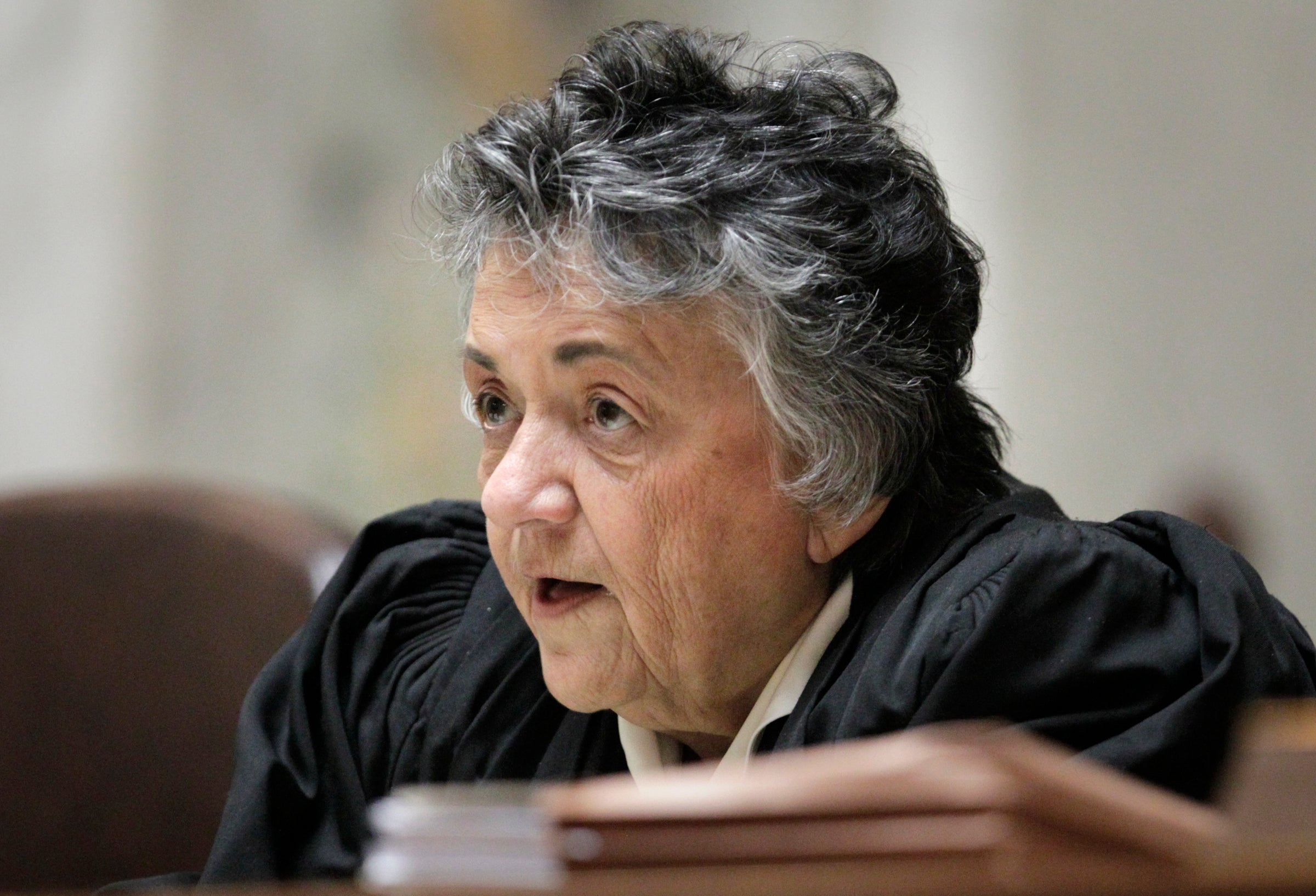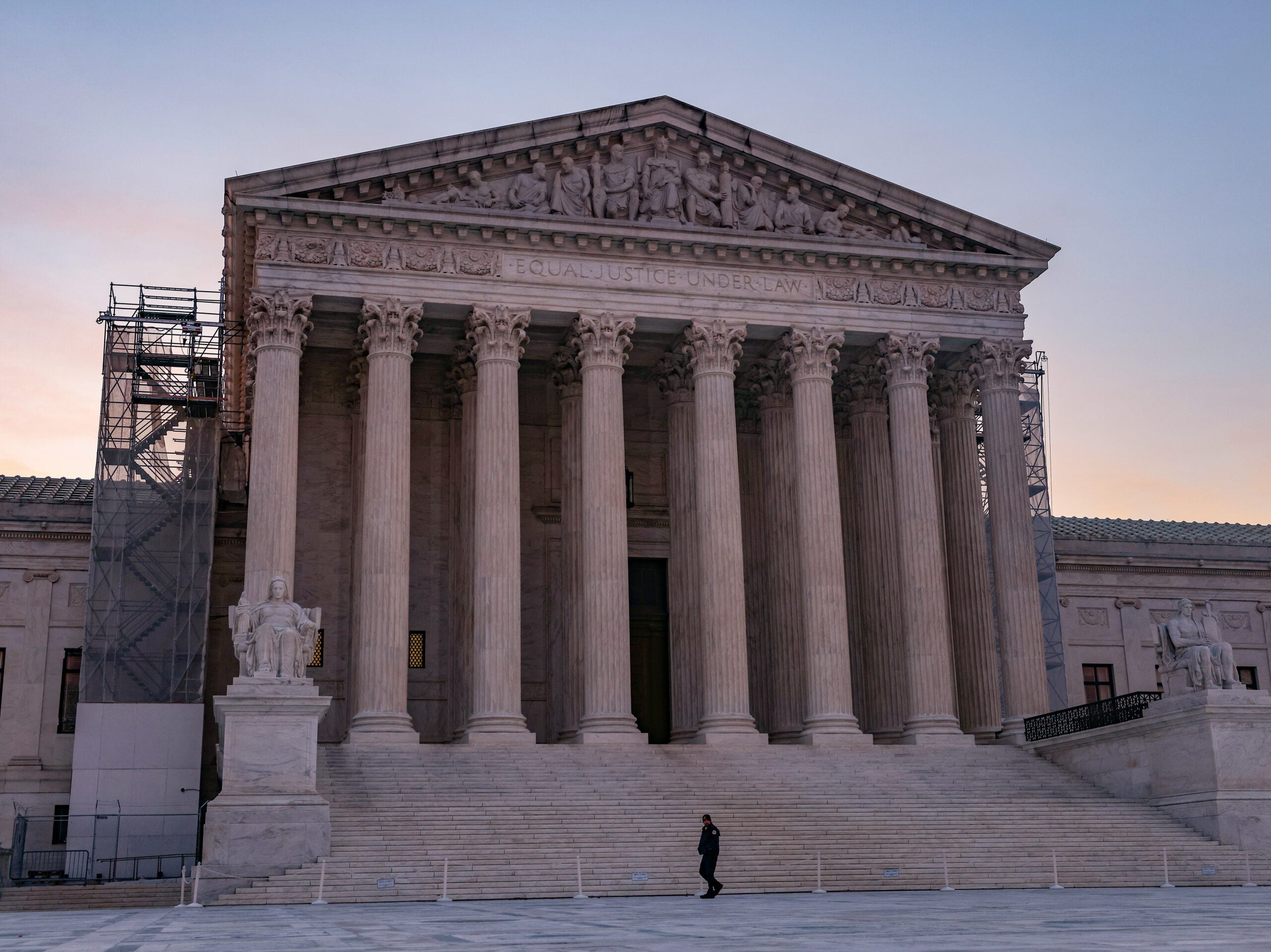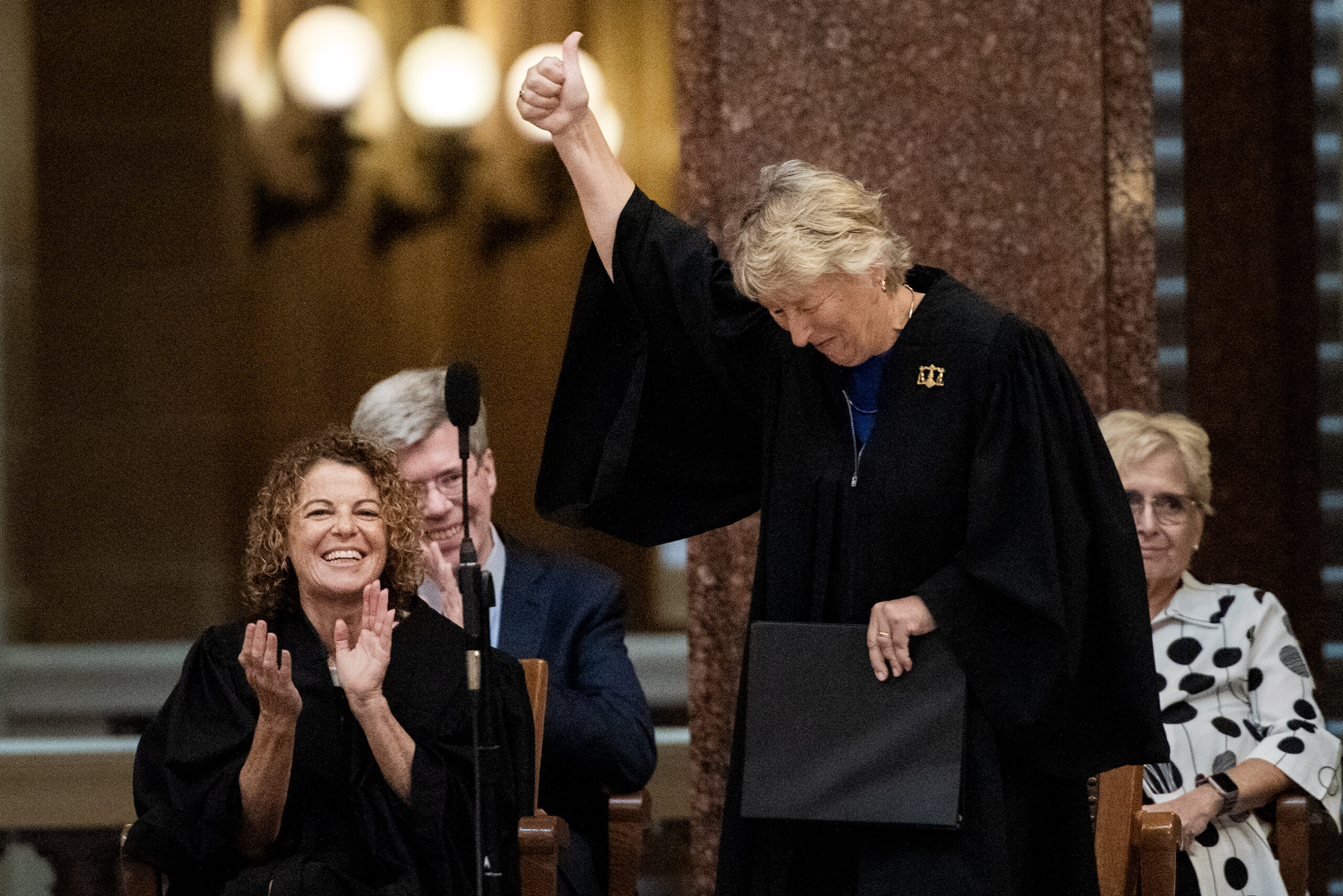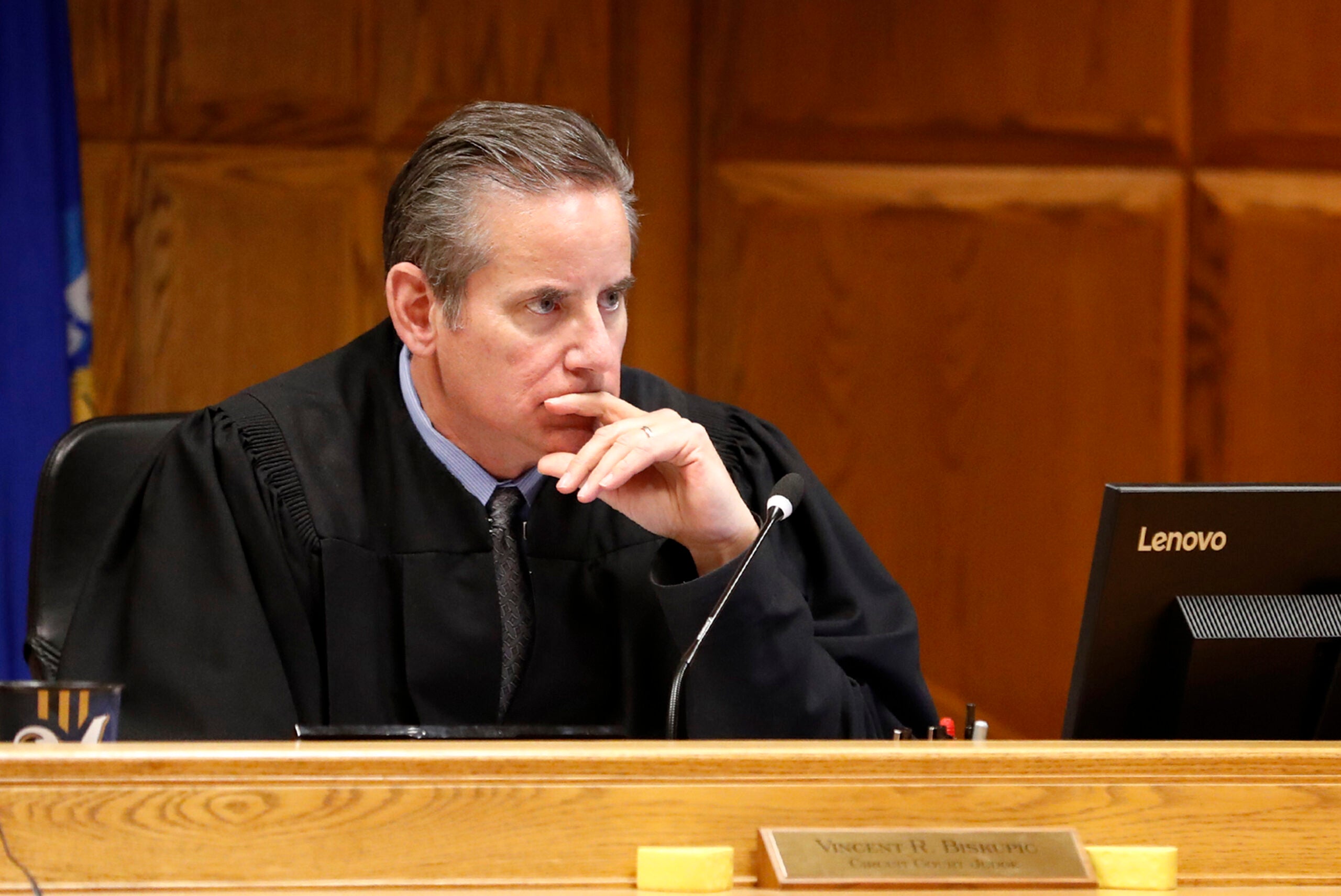Shirley Abrahamson, Wisconsin’s longest-serving Supreme Court justice, died Saturday at the age of 87.
Abrahamson announced in 2018 that she had cancer and would not be seeking another term as a Supreme Court justice. She retired from the court last year after serving for 43 years — longer than any other Supreme Court justice in the state’s history. She was the sole woman serving on the court until 1993.
Abrahamson was appointed to the Wisconsin Supreme Court by Democratic Gov. Patrick Lucey in 1976. She was the first woman to serve as chief justice when she assumed the role in 1996. Abrahamson was also the only woman in her class at Indiana Law School when she graduated top of her class in 1956.
Stay informed on the latest news
Sign up for WPR’s email newsletter.
In a 2019 celebration honoring Abrahamson, U.S. Supreme Court Justice Ruth Bader Ginsburg said in a recorded video message that Abrahamson was “the most courageous and sage” jurist in the nation and the world.
“She has inspired legions to follow in her way, to strive constantly to make the legal system genuinely equal and accessible to all who dwell in our fair land,” said Ginsburg.
Wisconsin Supreme Court Justice Jill Karofsky called Abrahamson a “trailblazer.”
I am so saddened by the loss of an icon. Justice Shirley Abrahamson was a trailblazer in every sense of the word.
I am eternally grateful for the path she helped pave for women like me.
Rest In Peace Justice Shirley. You will missed. https://t.co/Mj191Hj60G
— Justice Jill Karofsky (@judgekarofsky) December 20, 2020
Gov. Tony Evers issued a statement Sunday saying he and his wife Kathy were “devastated” to learn of Abrahamson’s passing.
“Chief Justice Abrahamson was a first — the first woman to serve on the Wisconsin Supreme Court and the first woman to serve as chief justice,” said Evers. “Yet, her legacy is defined not just by being a first, but her life’s work of ensuring she would not be the last, paving and lighting the way for the many women and others who would come after her.”
Evers issued an executive order in August honoring Abrahamson’s life and legacy by naming the Wisconsin Historical Society Library Reading Room after her.
“It was not uncommon to find Shirley hard at work in the Historical Society’s main reading room, surrounded by stacks of books, publications and photocopying materials, conducting research, crafting arguments, reworking opinions, drafting articles for publication, and composing speeches to deliver around the state, around the country and around the world,” said her son Dan Abrahamson during a dedication ceremony this fall.
Among those she inspired throughout her judicial career are current and former judges, including former Wisconsin Supreme Court Justice Janine Geske. Geske served with Abrahamson from 1993 to 1998. On Sunday, Geske told WPR she was filled with “deep sadness” when Justice Ann Walsh Bradley informed her of Abrahamson’s passing Saturday.
Geske remembered Abrahamson as a wonderful friend with a great sense of humor who held everyone around her to high standards. She learned to respect how Abrahamson scrutinized every word in an opinion and weigh the impacts those words may have on other cases.
“I always said she’s the hardest working, smartest person I know and I’ve ever met,” said Geske. “She worked, like, 20 hours a day. If you wanted to find her at 11 o’clock on a Saturday night, you’d call the chambers.”
But, she also remembered Abrahamson and her husband, Seymour, were a couple who cared a great deal about families.
“When she became a grandmother, it was like a whole new world for her,” Geske said. “She just became a very proud woman and was very attached to her grandson Moses and would show his pictures, like every grandma.”
She and others remembered how Abrahamson always made time for everyone.
U.S. Sen. Tammy Baldwin, D-Wisconsin, said in a statement that Abrahamson understood the court system “belongs to the people, not powerful special interests.”
“That is why she spent a lot of her time traveling the state, meeting with people — whether it was meeting with local judges, riding along with local law enforcement, or meeting with advocates for victims of sexual assault and domestic violence — she always understood that you can’t serve the people if you don’t walk in their shoes,” said Baldwin.
Wisconsin Attorney General Josh Kaul said in a statement late Sunday that Abrahamson was a “towering figure in American law.”
“Through those hundreds and hundreds of opinions, Chief Justice Abrahamson shaped our understanding of the law for the better,” said Kaul. “Those opinions will have an impact for decades to come, as courts look to them for guidance and wisdom in resolving legal issues that have yet to arise.”
When Abrahamson announced she was stepping down from the court, she said she tried to devote her life “to service and to justice for all” and said it was a “difficult decision.”
“But in that regard, it is like many of the decisions in cases I have helped decide over four decades on the court — most often, good arguments on both sides, difficult choices, important questions,” she wrote in a statement.
Abrahamson highlighted the need for an independent, non-partisan judiciary in her decision to retire and during the celebration held in her honor last year. Abrahamson’s last day on the court was July 31, 2019. Conservative Brian Hagedorn was elected to her seat on the court for a 10-year term in April last year.
Abrahamson authored more than 450 majority opinions and was involved in more than 3,500 written decisions during her more than four decades on the Wisconsin Supreme Court, according to The Associated Press.
Wisconsin Public Radio, © Copyright 2024, Board of Regents of the University of Wisconsin System and Wisconsin Educational Communications Board.






